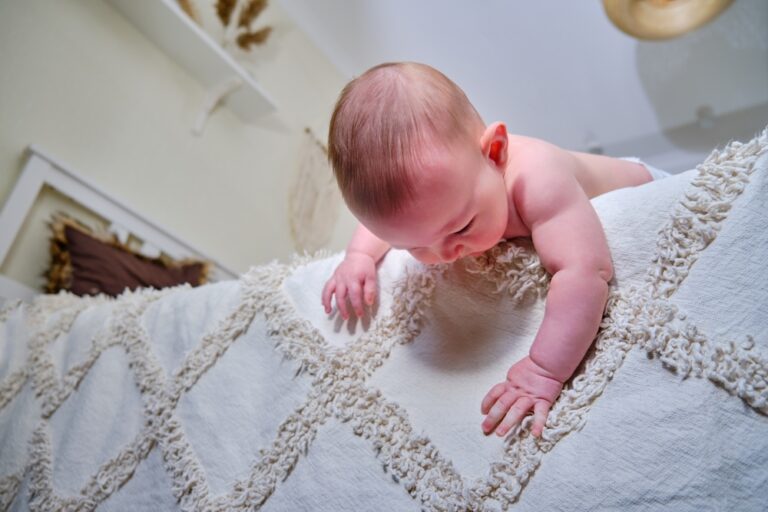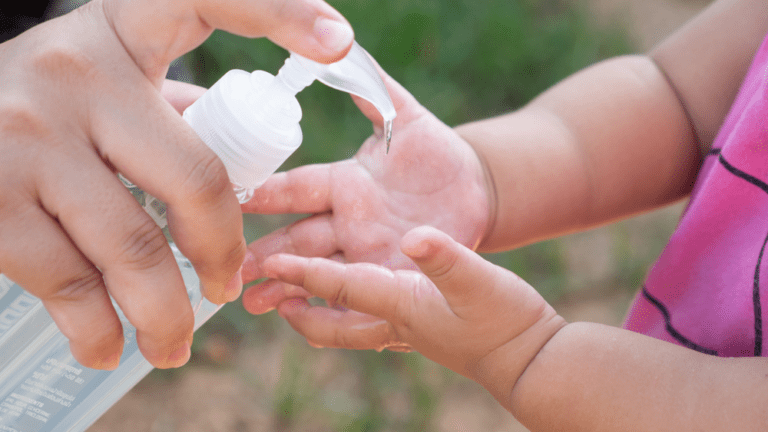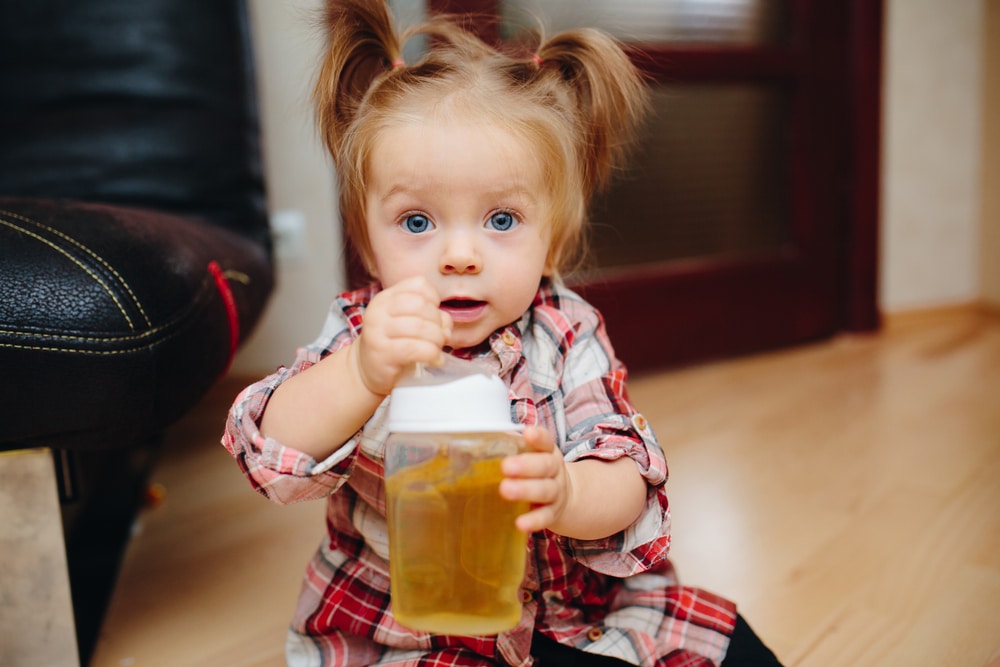It was a sunny Saturday afternoon at our family cookout when I heard the collective gasp, my nine‑month‑old nephew had toddled over and, before anyone could react, drank a beer straight from my hand. For a split second, time stopped. In that heart‑pounding moment, we realized how even the briefest sip of alcohol can set off a cascade of questions, fears, and urgent “what ifs.” If you’ve ever faced the horror of finding your baby accidentally drank alcohol, you know it’s a parental nightmare and yet, with the right knowledge and tools, it can become an opportunity to learn, prevent, and protect.
- Immediate Steps: “What to Do if Child Accidentally Drinks Alcohol”
- “What Happens If a Kid Drinks a Sip of Alcohol?” vs Larger Amounts
- The Signs of Alcohol Poisoning in Toddler
- Does Infant Mouthwash & Hand‑Sanitizer Contains Alcohol?
- Why is alcohol bad for babies?
- How much alcohol is dangerous for the baby?
- What if it's just home brewed beer?
- Long‑Term Consequences of Alcohol Ingestion
- FAQ’s
This guide will help you understand exactly what to do if your child accidentally drinks alcohol. We’ll look at how a baby’s body handles alcohol differently.
Immediate Steps: “What to Do if Child Accidentally Drinks Alcohol”

U.S. Poison Control Centers logged over 11,000 exposures in children under 6 in 2023, a 12% increase since 2019, of which 30% involved alcohol‐based hand sanitizers. Thus, it is a very frequent accident. The important thing is to handle the situation well.
- Stay calm and assess how much was ingested. If it’s a small sip, your baby may be alert and responsive.
- Call Poison Control (US: 1-800-222-1222) or your country’s equivalent. Provide:
-
- Estimated volume consumed
- ABV (alcohol‑by‑volume) percentage of the beer
- Your baby’s weight and age
- Monitor vital signs closely, like breathing rate, skin color, and level of consciousness.
-
- Seek emergency care if you note any of the following signs of alcohol poisoning and seizures:
-
- Lethargy or unresponsiveness
- Slow or irregular breathing
- Seizures or twitching
- Hypothermia (cold, clammy skin)
-
- Do NOT induce vomiting.
- Document everything, time of ingestion, amount, and parental observations. This will expedite medical evaluation.
Hospital Treatment & Prognosis
In the ER, doctors will:
- Check BAC and blood sugar
- Administer IV fluids and dextrose
- Provide oxygen, warming, and seizure monitoring
Fortunately, most infants recover fully with prompt care. The English baby’s case ended with no complications, highlighting the importance of rapid response
“What Happens If a Kid Drinks a Sip of Alcohol?” vs Larger Amounts

Can a sip of beer hurt a baby? The answer to this question may surprise you. According to Dr. John Smith, an expert in the field of pediatric medicine, even just a tiny sip of alcohol or beer can be harmful to babies and infants.
Drinking any amount of beer is not recommended, as it can cause significant health problems in babies. Alcohol consumption during pregnancy or while breastfeeding can have severe consequences and lead to physical and mental congenital disabilities, including fetal alcohol syndrome (FAS) and fetal alcohol spectrum disorder (FASD).
Even one sip of alcohol can harm an infant’s liver and brain, causing learning impairments and behavioral troubles.
- Single Sip (<5 mL): May cause mild drowsiness; monitor for 6–8 hours.
- Multiple Sips (>10 mL): Risk of significant BAC elevation, hypoglycemia, and potential seizures.
- Larger Volumes (>20 mL): High likelihood of alcohol poisoning; immediate EMS activation required.
Why Babies Are Uniquely Vulnerable
- Immature Metabolism: Infants have only 10–20% of adult levels of alcohol dehydrogenase (ADH), the key enzyme that breaks down ethanol in the liver. This means alcohol lingers longer in their bloodstream, raising the risk of CNS depression and hypoglycemia (low blood sugar).
- Rapid Absorption: Because babies have a higher body‑water content relative to adults, ethanol distributes through a larger proportion of their body mass, leading to higher peak blood alcohol concentrations (BAC) per unit consumed.
- Neurological Sensitivity: The developing brain is exquisitely sensitive to toxins. Even tiny doses can impair neural pathways, affecting coordination and respiratory drive.
New Insight: A 2024 pediatric study found that infants under six months can show measurable ethanol metabolites in hair samples up to three months post‑exposure, a much longer window than previously believed.
Also, check out our detailed guide on what to do if your baby accidentally drank old formula, another common parenting scare with hidden health risks.
The Signs of Alcohol Poisoning in Toddler
- Behavioral: Excessive drowsiness, difficulty waking, incoherent crying, allergic reaction or unresponsiveness.
- Motor: Lack of coordination, limpness, or seizure activity.
- Respiratory/Cardiac: Slow, shallow breathing; slow heartbeat; bluish lips or fingertips.
- Metabolic: Hypoglycemia can present as tremors, sweating, or seizures.
If you observe any of these, treat it as a medical emergency.
Does Infant Mouthwash & Hand‑Sanitizer Contains Alcohol?

While beer is the headline threat, other alcohol‑based household items pose equal or greater danger:
- Mouthwash: Often contains up to 26% ethanol plus other solvents.
- Hand Sanitizer: Ranging from 60–95% ethanol or isopropanol.
Including cleaning fluids, cooking wine, and vanilla extract, all contain ethanol and pose similar poisoning risks.
Even using alcohol on a child’s gums during teething can be dangerously misleading.
In 2023, Poison Control Centers reported a 40% increase in toddler exposures to mouthwash, with 15% resulting in brief ER stays due to vomiting and moderate CNS depression.
To prevent this, think about smart-lock cabinets that can be integrated with voice alerts from your home assistant or that will notify your phone when they are opened. also focus on:
- Secure Storage: Always lock up beverages, mouthwash, and sanitizers in high, child‑proof cabinets.
- Smart Monitoring: Install tamper sensors or smart camera alerts near bars and medicine cabinets.
- Education: As soon as they’re verbally capable, teach children that “alcohol is medicine for grown‑ups,” not for them.
- Routine Checks: At least twice weekly, sweep visible surfaces for any unattended glassware.
Why is alcohol bad for babies?
Alcohol consumption is known to have profound health implications for babies and infants. As such, parents need to be aware of the detrimental effects that alcohol can have on an unborn or newborn baby. In extreme cases, even the most minor alcohol consumption during pregnancy or infancy can cause permanent physical and mental damage.
A recent study from the University of Oslo has highlighted the potential dangers that even moderate drinking habits can pose to babies and infants.
The study found that even after mothers drank as little as one beer, their babies experienced adverse reactions, including reduced muscle tone, slower reflexes, increased irritability, and difficulty feeding. This suggests that any alcohol consumed by a pregnant mother or an infant could lead to long-term development issues in those associated with behavior, communication, and social interaction.
Alcohol is known to cause Fetal Alcohol Syndrome (FAS) in babies whose mothers drank heavily during pregnancy. FAS can lead to facial deformities, heart defects, nervous system problems, and learning disabilities. In addition to these serious issues, studies have found that even low levels of alcohol consumption can affect fetal development, leading, among other things, to decreased birth weight.
How much alcohol is dangerous for the baby?
Alcohol consumption is a significant concern for parents, especially regarding their baby’s safety. eEen small amounts of alcohol can be dangerous for babies and infants. In light of this information, parents should be aware of the potential risks of drinking beer while pregnant or breastfeeding.
Drinking any alcoholic beverage while pregnant or breastfeeding, which has been linked to various health issues in babies and children, including physical abnormalities, developmental delays, and behavioral problems.
Consuming even small amounts of alcohol during pregnancy may increase a baby’s risk for Sudden Infant Death Syndrome (SIDS). It is essential for expecting or new mothers to avoid drinking beer altogether, as it can contain higher concentrations of alcohol than other beverages.
What if it’s just home brewed beer?
It’s a common question: “Does it matter if my baby drank a home-brewed beer instead of something store-bought?” The short answer is, yes, it matters a lot. In fact, it might be even more dangerous.
Unlike commercially produced beer, home-brewed alcohol doesn’t undergo strict quality control. That means the alcohol content can vary wildly, sometimes being much higher than typical store-bought beer. While store beer usually contains about 4% to 6% alcohol by volume, a home-brew could reach 10% or more, without you even knowing it.
On top of that, the brewing process can introduce bacteria, wild yeasts, or toxic by-products if not handled properly. This adds an entirely new layer of risk, especially for infants with developing immune systems. Even trace amounts of contamination, harmless to adults, can lead to infections or severe stomach upset in babies.
Another issue? The taste and texture of home-brewed beer can be more appealing to curious toddlers. Sweeter blends or fruity infusions might entice a baby to drink more than a sip, which increases the danger.
So, if your baby accidentally drank a home brewed beer, don’t assume it’s safer because it was made at home. It could be just as toxic or worse. Treat it with the same urgency as any alcohol ingestion. Call Poison Control or your local emergency services immediately, and make sure to tell them it was home-brewed so they can better assess the risks.
In this case, homemade doesn’t mean harmless.
Long‑Term Consequences of Alcohol Ingestion
Though one accidental ingestion doesn’t cause fetal alcohol spectrum disorder (FASD), repeated exposures in infancy can, as alcohol is poison.
Disrupt synaptic pruning and myelination processes in the developing brain.
Increase risk for later neurobehavioral issues, such as attention-deficit behaviors.
FAQ’s
1. Is Alcohol Bad for Kids? “Is It Healthy for Kids to Be Exposed to Alcohol?”
There is no known health benefit to pediatric alcohol exposure. All credible research confirms that alcohol is poison for infants and toddlers, with no dose considered beneficial. Early, voluntary exposure in controlled settings (e.g., small sips at a family event) still carries risk and is not recommended by pediatric authorities.
2. What are the warning signs of alcohol poisoning in a toddler?
Look for excessive sleepiness or unresponsiveness, slow or irregular breathing, seizures, hypothermia (cold skin), respiratory depression, Bradycardia <80 bpm (normal: 100–160), and pale or bluish lips.
3. How long does alcohol stay in a baby’s system?
Because of immature metabolism, alcohol can linger in an infant’s bloodstream for hours, and metabolites remain detectable in hair or urine for days to weeks after exposure.
Detection Windows:
- Blood: Up to 8–12 hours post‑exposure.
- Urine (EtG metabolite): Up to 24–36 hours.
- Hair: Ethyl glucuronide (EtG) can be detected for up to 90 days in hair segments.
- Breath: Trace ethanol detectable for 4–6 hours after a small sip.
4. Can I (or should I) measure my child’s BAC at home?
Home breathalyzers are not FDA‑approved for infants or toddlers and can read falsely low; the only reliable methods are blood tests in a medical setting.
5. Am I legally required to report baby drank a beer to authorities?
Except in cases of clear neglect or abuse, accidental ingestion is handled medically, not legally. However, some states’ child welfare agencies require a report if your child is hospitalized for suspected poisoning.
6. What first‑aid certification covers pediatric alcohol poisoning?”
The Red Cross Pediatric First Aid & CPR course includes alcohol‐poisoning protocols; certification spans 7 hours and is valid for 2 years.








